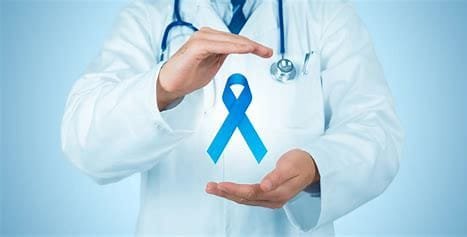Cancer is one of the major health issues worldwide, and though not all cancers can be prevented, most can be avoided by simple lifestyle choices. By making efforts to enhance your health, you can lower your chances and feel better overall. Here are some simple tips to reduce your chances of getting cancer.

1. Maintain a balanced, nutritious diet.
A healthy diet plays a key role in preventing cancer. Studies have proven that certain foods can protect your body, while others may be risky for you. Here’s how to build a cancer-preventive diet:
Focus on fruits and vegetables: Colorful fruits and vegetables are full of antioxidants and phytochemicals that protect cells. Leafy greens, berries, carrots, and tomatoes are especially beneficial.
Limit red and processed meats: A high consumption of red and processed meats has been associated with a higher risk of colorectal cancer. You may replace some meat portions with plant-based proteins such as beans, lentils, or tofu.
Use whole grains: Whole grains such as oats, brown rice, and whole-wheat bread contain fiber that helps in digestion and can lower the risk of colorectal cancer.
2. Be physically active.
Physical activity is the second most potent tool in preventing cancer. Regular exercise ensures control of hormones and enhances immunity, which are quite effective in reducing the cancer threat. Even moderate exercise could make a difference for most people. Recommendations for moderate intensity for at least 150 minutes a week can be walking briskly, cycling, or swimming. If vigorous exercise is preferred, a lesser amount of 75 minutes a week could bring equal benefits.
Incorporate strength training: Lifting weights or performing resistance exercises twice a week can help keep your muscles strong and support healthy levels of hormones.
Take active breaks: Try standing or stretching every hour if you sit a lot during the day, as long periods of inactivity may contribute to certain cancers.
3. Avoid Tobacco in All Forms
Among the most dangerous risk factors for cancer is tobacco use. Smoking has been particularly associated with lung, mouth, and throat cancers and many more. On the bright side, quitting tobacco yields positive effects nearly right away:
Quit smoking: If you smoke, it’s never too late to quit. Your body starts to repair itself within minutes of your last cigarette.
Steer clear of secondhand smoke: Nonsmokers who are exposed to passive smoking increase their risks of acquiring cancer.
Reduce alcohol intake: Excessive consumption of alcohol increases the risk factors for liver, mouth, pharynx, and breast cancers. Women limit their intake to a minimum of one drink, while men limit their intake to a minimum of two every day.
4. Avoid Exposure to the Sun
Skin cancer is a very common cancer that one can avoid by taking care of their skin from harsh UV rays. This may be achieved by applying sunscreen to the skin. A broad-spectrum sunscreen with an SPF of 30 or higher protects the skin from the harmful sun’s UV rays. It should be applied liberally if one is going outdoors for a long time. If possible, avoid sunshine altogether during its strongest times, between 10 a.m. and 4 p.m.
Protect your clothes: Long-sleeved shirts, hats, and sunglasses help protect your skin.
5. Healthy Weight

Extra body weight has been found to increase the chances of developing many cancers like breast, prostate, colon, and kidney cancers. Dieting and exercising maintain weight and can be used as a preventive measure for such cancers.
Eat sensibly: Cut out high-calorie, low-nutrient foods and sugary drinks. Avoiding portions and maintaining meal balances prevents gaining weight.
Keep yourself active every day: These are just simple activities such as walking, stair climbing, and gardening that will help burn calories and keep up with your weight.
Weigh yourself regularly: Monitoring how much you weigh over time is one of the best methods of tracking early changes or alterations to make.
6. Regular Screening
Screening tests for many cancers—breast, cervical, colorectal, and skin—can detect issues early when treatment is most effective. Talk to your healthcare provider about the following:
Schedule regular check-ups: Mammograms, colonoscopies, Pap smears, and other screenings should be done at recommended intervals depending on age and risk factors.
Understand your family history: Certain cancers are hereditary; hence, understanding one’s history can make him and his doctor build an even more tailored plan about screening.
Be watchful for signs: Early diagnosis means that if you feel that something is different within your body, then a doctor should be visited, especially when there are unusual lumps, prolonged pain, and persistent fatigue.
7. Shun Environmental Toxins
Exposure to some environmental chemicals is known to increase cancer risk. It is impossible to eliminate all toxins, but there are some practical ways you can limit your exposure.
Use safe household products: Avoid products that have been known to contain known carcinogens, such as some cleaning chemicals and cosmetics. Instead, look for environmentally friendly alternatives.
Reduce exposure to pollution: Try avoiding areas with high levels of air pollution or intense chemical use.
Practice safe use of chemicals: Wear your gear when dealing with pesticides, herbicides, or cleaning products.
Conclusion

Taking these preventive measures does not guarantee a life of no cancer, but such measures will surely minimize the chances of developing the condition. While lifestyle change enhances the immune system in general to fight cancer, such a change can give away to a longer and richer life. Knowledge of what cancer is and healthy lifestyles will be the best ammunition against cancer. Every step counts.



